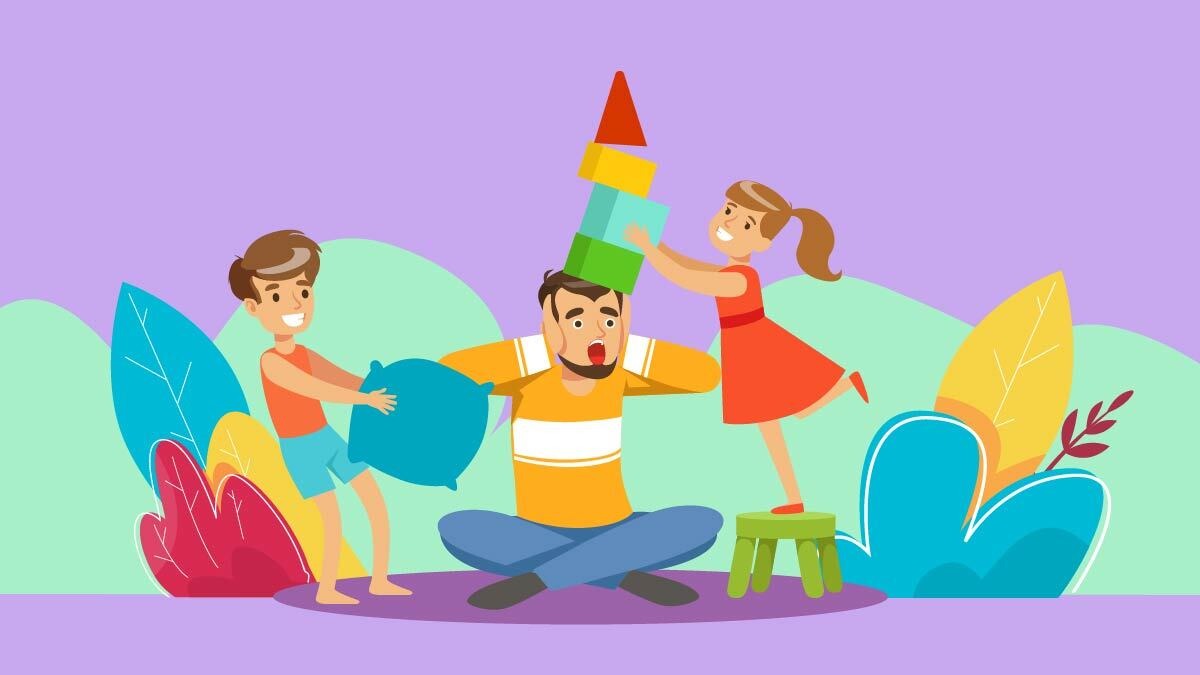Around 6.1 million people in the United States have some form of ADD or ADHD.
That’s 9.4% of the population.
With conventional ADHD medications posing risks long-term and flaunting some nasty side effects, it’s no surprise that so many people are looking for a more natural treatment.
So, can CBD treat ADHD?
In this article, we look at the facts, fiction, and how you can treat ADHD using CBD and other natural methods.
What is ADHD?
ADHD stands for attention deficit hyperactivity disorder.
Symptoms of ADHD vary but the most common symptom is poor focus and concentration.
People with ADHD often struggle to follow through with specific tasks.
Controlling impulsive behavior can also be difficult. Children with ADHD are often labeled as “unruly” or “problematic”.
Hyperactivity is a large part of ADHD. People with this symptom may struggle to sit still and have bounds of energy to burn.
What Are The Symptoms of ADHD?
- Lack of attention
- Insomnia
- Irritability
- Forgetfulness
- Increased anxiety
- Struggling to complete tasks
- Fidgeting & inability to sit still
- Talking a lot
- Taking unnecessary risks without thinking
- Difficulty resisting temptation
- Difficulty getting on well with others
- Having trouble sharing & taking turns
How Does CBD Work for ADHD?
CBD interacts with the endocannabinoid system. CB1 receptors are abundant in the brain and nervous system. The interaction with these receptors may be why CBD works for ADHD.
When CBD interacts with the CB1 receptors in the endocannabinoid system, it can reduce anxiety and hyperactivity. This is a huge benefit to people with ADHD.
Although there’s limited scientific research into CBD and ADHD, many people have reported a reduction of symptoms after using CBD.
CBD & ADHD: What Does the Research Say?
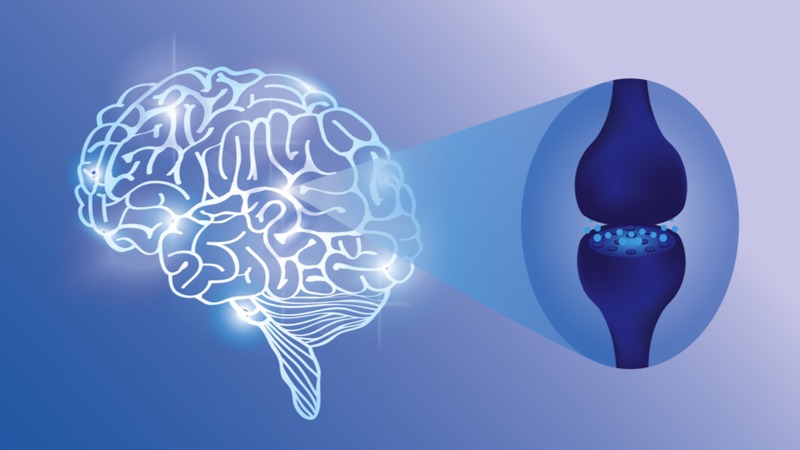
Although there’s limited research into the effects of CBD on ADHD, there are some studies that involve hemp-derived CBD and medical cannabis.
Unfortunately, most available research isn’t as useful as we’d like. A lot of it involves the use of products with a high THC content or involves research performed under poor testing conditions — such as small study groups, correlational data, or lack of blinding in the study design.
Two studies provide at least some insight on the matter.
One study looked into the impact of a full-spectrum cannabis medication on people with ADHD [1]. This was a small study of 30 people and unfortunately, they noted an insignificant improvement in cognitive function and IQ performance.
The study noted a small improvement in impulsiveness and hyperactivity. The researchers suggested the study could have been ruined by participants not following instructions to refrain from using other medications and alcohol during the test.
A 2020 study found that when people with ADHD used high doses of medical cannabis (including THC) symptoms decreased [2].
Does CBD Help Children with ADHD?
Due to the stigma around cannabis, there’s currently no scientific research into the effects of CBD on children with ADHD.
It’s acceptable to give CBD to your child for ADHD as long as it doesn’t contain more than 0.3% THC.
The form of CBD you use and how you administer it will depend on your child. Most parents go for CBD gummies because they’re already well-loved by most children, provide consistent doses of CBD per piece, and can be split in half for smaller doses if needed.
Consult your child’s pediatrician before using CBD to help manage ADHD with children.
Best Types of CBD for Children with ADHD
The best way to give CBD to children is by using CBD edibles.
As far as I know, there isn’t a kid around that’ll refuse a sugary treat. This is the easiest way to get your child to consume CBD.
If you’re trying to cut down the sugar in your child’s diet, which may help reduce hyperactivity, CBD gummies aren’t going to be the best option. In this case, we recommend CBD oil.
There are flavored CBD oils out there but honestly, the potent aromas and flavors of the oil tend to overpower these.
The best way to administer CBD oil is by adding it to your child’s food. The flavors in the meal will mask the hemp flavor and make it much less likely for your kid to throw a tantrum over the taste of the oil.
What is the Best CBD Oil for ADHD?
- Royal CBD — Most Effective CBD Oil For ADHD
- Gold Bee — Best Organic CBD Oil
- Hemp Bombs — Best CBD Isolate Oil
1. Royal CBD
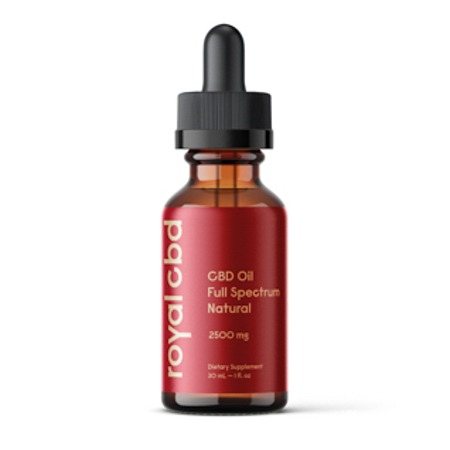 Royal CBD produces high-quality CBD products.
Royal CBD produces high-quality CBD products.
They have a range of CBD oil, edibles, and topicals but their 1000mg CBD oil is our top pick for ADHD. The CBD oil is full-spectrum with an excellent cannabinoid profile — third-party lab tested. This means you’ll benefit from the full entourage effect.
All of their CBD products use high-quality extracts that are made using a CO2 extraction technique. The raw hemp used in the extraction process is organic and US-grown.
If you’re looking for a premium CBD company with a wide range of products suitable for treating ADHD, Royal CBD is a great place to look.
Key Points:
- High-quality CBD
- Full-spectrum, broad-spectrum, & CBD isolate available
- Extracted from organic hemp
- Multiple potencies available
- Great customer service
- Excellent cannabinoid profiles — third-party lab tested
2. Gold Bee CBD
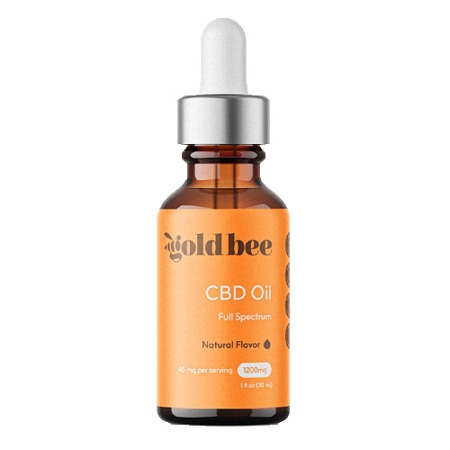 Gold Bee CBD is a relatively small company. They focus more on the quality of their products rather than quantity and product range.
Gold Bee CBD is a relatively small company. They focus more on the quality of their products rather than quantity and product range.
Their product range is limited to less than 10 products. However, the products they do have on offer are top-quality.
Gold Bee CBD uses a slow-diffusion extraction technique to extract the CBD from organic hemp. This type of extraction is only possible in small batches and it takes far longer than a typical CO2 extraction. The quality of the end product is well worth the wait though.
We recommend Gold Bee’s full-spectrum 1200mg CBD oil for people with ADHD.
Key Points:
- High-quality CBD
- Full- & broad-spectrum CBD available
- Slow-diffusion extraction technique
- 100% vegan products (excluding their honey sticks)
- Excellent cannabinoid profiles in their full- & broad-spectrum products
- Third-party lab tested
3. Hemp Bombs CBD
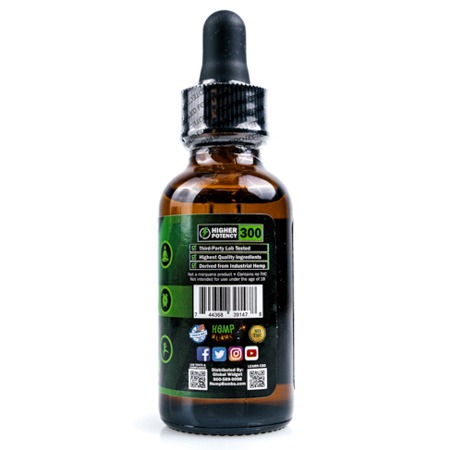 Hemp Bombs CBD produces pure CBD extracts (CBD isolate) only.
Hemp Bombs CBD produces pure CBD extracts (CBD isolate) only.
Their extracts are high-quality and are backed by third-party laboratory testing. They have an extensive range of products and potencies available, from high-potency oils to low-potency gummies.
Hemp Bombs CBD is a great company to look at if you’re looking for CBD isolates to treat ADHD. Their edible selection of CBD is great if you want to treat your child for ADHD and their high-potency CBD oils are excellent for supplementing meals.
Key Points:
- CBD isolates only
- Great value for money
- Extracted from US-grown organic hemp
- extensive range of products & potencies
Conventional ADHD Treatments vs. CBD
The most common drugs for treating ADHD work by increasing dopamine levels in the brain. Doing this increases the threshold for activating the brain’s pleasure center.
When the pleasure center is activated more easily, it makes tasks more rewarding. When you get more pleasure from completing a task, it becomes more enjoyable — meaning you can stay focused for longer.
Common ADHD Drugs
- Adderall
- Ritalin
- Vyvanse
- Dexedrine
- Concerta
The problem with these synthetic ADHD drugs is they come with some pretty nasty side effects and can cause damage to the liver in the long term.
There’s no doubt they work, but with side effects such as prolonged headaches, stunted growth, chronic insomnia, irritability, and stomach problems it’s easy to see why people are turning to natural alternatives.
Treating ADHD Naturally
Even for severe ADHD cases, the need for conventional medications can be eliminated with adequate nutrition, supplementation, and lifestyle changes.
By incorporating CBD along with a variety of other simple lifestyle changes you may be able to reduce your or your child’s ADHD symptoms.
A simple dietary change may help ease symptoms [3]. Hyperactivity may stem from high blood sugar. Reducing the intake of sugary foods and supplementing CBD to control blood sugar levels could be enough to increase focus and reduce hyperactivity.
Speaking to a nutritionist is a great way to find out how a change in diet can affect ADHD.
Exercise is another fantastic way to burn off excess energy and increase dopamine levels in the brain [4].
Remember we mentioned that the whole point of conventional meds was to increase dopamine levels? Well, this can be done naturally with routine exercise.
Implementing a healthy routine into your life will benefit ADHD massively. Sleep plays a huge role in managing ADHD symptoms. Ensuring you get a full night of rest is an excellent way of improving focus and concentration the following day.
Using CBD is a great way to promote healthy sleep.
Combining CBD with a dietary change, exercise routine, and consistent sleep schedule may be enough to control your ADHD symptoms.
How to Use CBD for ADHD?
There are several ways to use CBD for ADHD. However, as mentioned, there are mixed results from person to person.
Start with a low dose and work your way up until you start to experience benefits.
Chances are if, after a month of CBD use you’re not noticing any reduction of ADHD symptoms, CBD isn’t going to work for you.
It’s important to note that the best way to use CBD for ADHD is through a multifaceted approach.
Using CBD alongside other treatments and lifestyle changes will give you a much higher chance of reducing the symptoms of ADHD.
Different CBD Products for ADHD
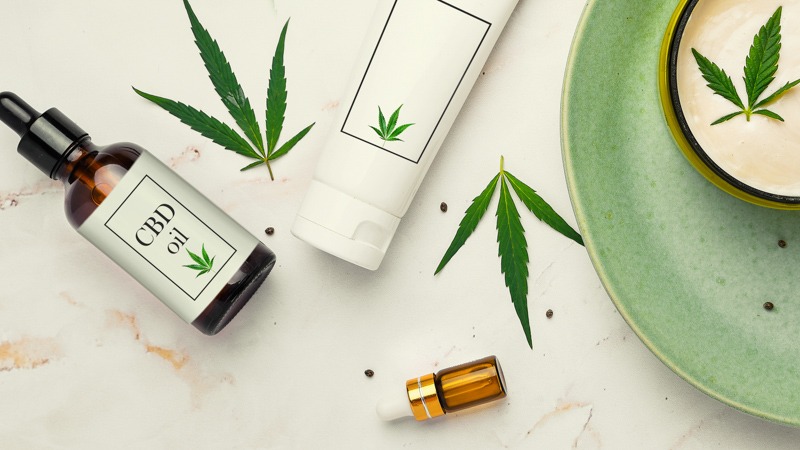 How you consume CBD for ADHD comes down to you. There are a number of different products available that may be effective for reducing symptoms and improving your focus and attention.
How you consume CBD for ADHD comes down to you. There are a number of different products available that may be effective for reducing symptoms and improving your focus and attention.
Although CBD topicals (creams, balms, and gels) and CBD vapes (inhaled CBD) are available, the best way to use CBD for ADHD is oral.
There are three categories of oral CBD:
1. CBD Oil
CBD oil is a popular form of CBD for treating ADHD.
It’s easily accessible and available in many different potencies and flavors — each with varying cannabinoid profiles.
This form of CBD gives you the most flexibility in terms of dosage and application.
You can adjust dosage by simply applying more or fewer drops of oil under the tongue or into daily food and drinks.
The best CBD oil for ADHD are products made from full-spectrum hemp extract and come with an entire range of third-party lab tests to prove the quality and purity of the oil. Inadvertently consuming contaminants like heavy metals can make ADHD symptoms even worse.
2. CBD Edibles & Gummies
CBD gummies are great if you can’t stand the taste of raw CBD oil.
They’re great for use with children with ADHD. What kid will refuse tasty gummy candies? Just make sure to keep them out of reach from the little ones until they’re needed.
CBD gummies do contain sugar which could cause hyperactivity — but replacing another daily sugary treat with a CBD gummy won’t make too much of a difference.
There are also more natural CBD edibles available that cut out processed sugar such as CBD honey sticks.
3. CBD Capsules
CBD capsules are a simple and easy way to consume CBD for ADHD.
They give you complete control over how much CBD you’re consuming. Each dry or soft gel capsule contains a precise and consistent dose of CBD.
Unlike their edible supplements, capsules contain no sugar.
They’re a great option if you’re struggling with focus at work and need a simple way to take CBD on the go.
CBD Dosage for ADHD
Figuring out what dosage you need to ease ADHD symptoms can be challenging at first.
For adults, finding the correct dosage of CBD requires some experimentation. Start with a small dose at first and work your way up until you notice your focus starts to improve and symptoms reside.
If you’re currently using a prescription ADHD medication it’s important that you consult your doctor before taking CBD. CBD can negatively impact certain medications, so speaking to a medical professional is essential.
CBD Dosage for Children With ADHD
As with adults, the dosage of CBD needed to relieve ADHD symptoms differs from person to person. The potency and dosage needed will be a lot less though.
If you’re using CBD oil in your child’s food, you can adjust the dose by purchasing a lower-potency oil and starting with only one or two drops. You can slowly increase the number of drops as needed.
If you’re using edibles to treat your child’s ADHD, you can purchase low-potency gummies and split them up. Gummies are easy to cut in half or quarter using a sharp knife.
Start with one-quarter of a 25 mg gummy and slowly work up the dosage if symptoms don’t reside.
Although there aren’t too many side effects to CBD, you should always be careful when administering it to children. When upping doses always do so in smaller increments and at a much slower pace than you would for yourself.
Final Thoughts: CBD for ADHD — Does it Work?
There’s no clear evidence that CBD works for ADHD — but there’s plenty of anecdotal reports from ADHD sufferers or parents of children with ADHD that say it works.
CBD is an excellent supplement for children and adults with ADHD but for the best results it should be combined with other forms of treatment.
Combining CBD with a dietary change and exercise routine is the most effective way to treat ADHD if you’re looking to take a more natural approach.
Remember to start with a low dose of CBD and work your way up slowly until you start seeing results.
For children with ADHD, remember to significantly reduce the dose and increase it far more gradually.
References Used In This Article
- Cooper, R. E., Williams, E., Seegobin, S., Tye, C., Kuntsi, J., & Asherson, P. (2017). Cannabinoids in attention-deficit/hyperactivity disorder: A randomized controlled trial. European Neuropsychopharmacology, 27(8), 795-808.
- Hergenrather, J. Y., Aviram, J., Vysotski, Y., Campisi-Pinto, S., Lewitus, G. M., & Meiri, D. (2020). Cannabinoid and Terpenoid Doses are Associated with Adult ADHD Status of Medical Cannabis Patients. Rambam Maimonides medical journal, 11(1).
- Nigg, J. T., Lewis, K., Edinger, T., & Falk, M. (2012). Meta-analysis of attention-deficit/hyperactivity disorder or attention-deficit/hyperactivity disorder symptoms, restriction diet, and synthetic food color additives. Journal of the American Academy of Child & Adolescent Psychiatry, 51(1), 86-97.
- Nigg, J. T., Lewis, K., Edinger, T., & Falk, M. (2012). Meta-analysis of attention-deficit/hyperactivity disorder or attention-deficit/hyperactivity disorder symptoms, restriction diet, and synthetic food color additives. Journal of the American Academy of Child & Adolescent Psychiatry, 51(1), 86-97.
- Berwid, O. G., & Halperin, J. M. (2012). Emerging support for the role of exercise in attention-deficit/hyperactivity disorder intervention planning. Current psychiatry reports, 14(5), 543-551.

